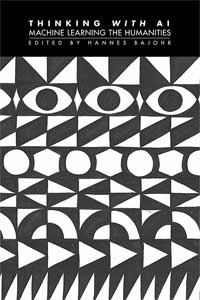What Do We Not Think About When We Think About Money?
 Monday, April 14, 2025 at 11:39AM
Monday, April 14, 2025 at 11:39AM
The following is a version of a post to the Radical Open Access mailing list written in response to the Radical Open Access III: From Openness to Social Justice Activism conference. Organised by the Radical Open Access Collective, the conference was held at Cambridge University Library and online on 10-11 April, 2025.
---
Just wanted to say a huge thank you to everyone involved in making the third Radical Open Access conference last week such a great success. It was fantastic hearing about everyone's projects. And the range of topics was inspiring: from the thoughtful provocations on infrastructural politics and the messy labour of maintenance (including those relating to recent developments with PubPub), to the generous comments on collaboration, community and collective care. I came away with a renewed sense of hope and possibility, and you can't ask for much more than that.
Thinking about it over the weekend, it has all left me with a question I'd like to raise by way of continuing the discussion with both those who were able to attend the conference and those who weren't.
It's a question about money.
I often worry about money, although not in the way one might imagine. I mean, when it comes to open access publishing projects, financial sustainability matters - of course it does. But, I wonder, to what extent has the toxic, 'neoliberal', 'managerialist' university shaped even us to focus on the money, funding and funding models, the business side of things, paid/free/volunteer/service/recognised & rewarded labour? Even how radical OA can capitalise on the current financial crisis of the university (at least in the UK and US)?
In common with many 21st century academics, I've been encouraged, over recent years especially, to think about money a lot and to ask questions such as: have I generated enough of it to keep my job? To keep the jobs of others? To do the things we really want to do (like organise conferences such as Radical OA III, or have the time to run OA journals and presses)? The toxic university has been very effective in making its problems our problems in that respect.
And this is only going to get worse as we move further into the current 'masks-off' era, where many employers have abandoned the pretense of making work attractive with free parking, nice 'creative' open-plan spaces, crayon-colored furnishings, coffee shops, mindfulness sessions, horizontal-ish management structures and an expressed concern for work-life balance. Instead, what we're seeing is a return to an overt emphasis on top-down micromanagement, hypersurveillance, monitoring and control - only now with the added bonus of AI that can check emails. (Hello, good you could join us!)
So, to repeat, money is extremely important, yes, I appreciate that. But what gets lost when it becomes one of the main lenses through which we view radical open access, including its relation to social justice activism? (Not the only one, but one of the main ones.)
I guess this is a variation on Naomi Klein's question: 'What aren’t we building when we are building our brands?' What might we not be thinking about when so many of us are so focused on thinking about how to financially sustain our OA projects?
Take social justice. Do we need to consider whether, these days, it's mainly activists and those in some way connected to institutions such as universities, museums and art galleries who strongly and overtly align themselves with social justice activism? In the US and the UK, many interpret Kamala Harris’s 2024 defeat by Trump as signalling the close of the era shaped by movements like Occupy, #MeToo, Black Lives Matter and the rise of DEI initiatives. Witness articles such as this one from just yesterday, arguing that an interest in social injustice and activism shows galleries like Tate Modern to be out of touch and is the reason why their visitor numbers are down. From this perspective, the dominant political divide is no longer so much left vs right, but insider vs outsider, between those who are part of the liberal establishment and those who are not.
If so, where does this leave us in the Radical Open Access Collective?
I appreciate we ourselves might argue in turn that the deeper issue remains the concentrated wealth and power of the 1% - financial institutions, multinationals (including academic publishers), Big Tech, BigAI, Musk, Zuckerberg, Bezos et al; and that the 'liberal elite' is just being used as a diversionary tactic so populist politicians and/or neoliberals can protect the rich and powerful while still presenting themselves as being on the side of 'ordinary' people.
Nevertheless, the question stands, given that in the above 'liberal establishment' insider v outsider framing that is now dominant in numerous places around the world, many of us - as highly educated professionals involved in publishing works that are often of specialist, minority interest - are no longer seen as necessarily being on the side of the angels, simply because we're on the left: How do we respond? How can we respond?
Of course, I understand all this is probably raising issues far larger than anything we can realistically resolve in terms of radical open access. Still, I'd be interested to learn what people think.
Thanks again to all those involved for such an intellectually stimulating and fruitful event.
 Gary Hall | Comments Off |
Gary Hall | Comments Off | 







